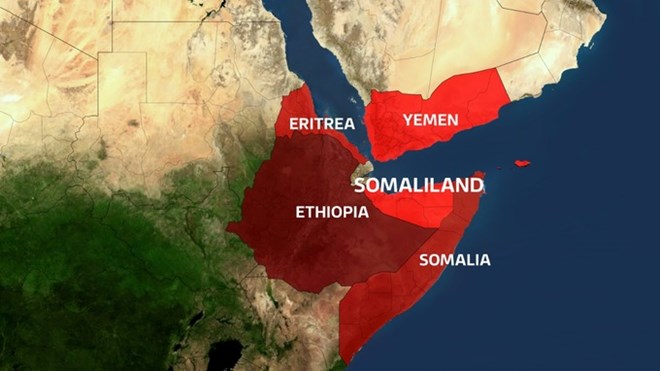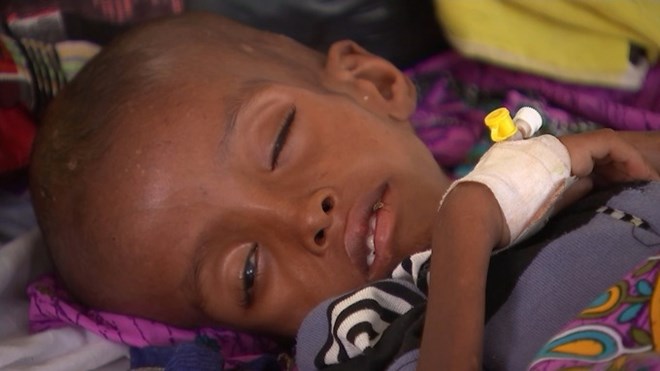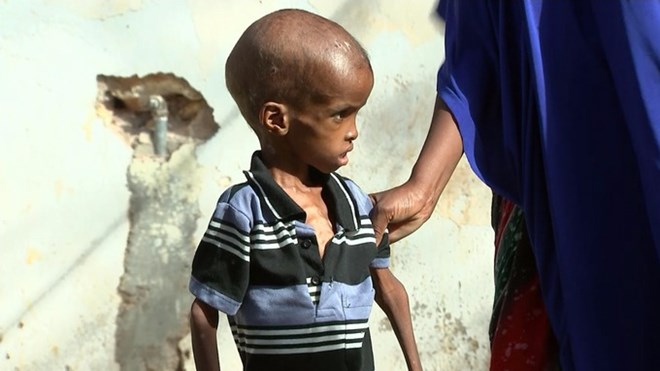
Monday August 7, 2017
 Self-declared Somaliland is on the east coast of Africa.
Self-declared Somaliland is on the east coast of Africa.Somaliland is a self-declared state located in the horn of Africa.
A former British colony, it is roughly the size of England and Wales, and declared independence in 1991 following years of civil war, which continues.
But it is now in the grip of new threats - drought, starvation and disease.
For three years there has been no rain.
This has led to more than half of Somaliland's 18 million livestock being wiped out and 1.5 million people facing starvation.
People are dying from malnutrition and diseases linked to it, such as cholera, which is being spread through drinking dirty water.
What aid is getting to Somaliland?
Severe drought conditions - the worst Somaliland has seen in a decade - has led thousands to flee their homes in search of food.
Camps have been set up - but aid has still to reach the remotest areas.
Britain has pledged £170 million of aid to Somalia - including Somaliland - this year.
And an appeal by the Disasters Emergency Committee (DEC) has so far raised £60 million for those in need in Somalia, South Sudan, Kenya and Ethiopia.
Supplies from UK agencies of clean water, flour, rice, cooking oil and sugar has been trucked in for hundreds of miles.
It is starting to get through to those who need it most - but the crisis is far from over.
At one Somaliland camp visited by ITV News, each family is allocated 25 kilos of supplies a week.
But as more people arrive, this is shared out between several families.
And if the rain fails again in the coming months, millions more could be in need.
Cholera and disease is spreading
Many in Somaliland are dying from cholera, which is spreading fast.
In some areas 500 new cases are reported per day.
Cholera is contracted through drinking dirty water, which in Somaliland has been infected by human waste or rotting animal carcasses.
Symptoms include feeling and being sick, stomach cramps and severe diarrhoea.
It can be easily treated using oral rehydration solution - a sachet containing a mix of salts and glucose dissolved in water. A vaccination is also available.
But without treatment a person can quickly become dehydrated, go into shock and die.
It is linked directly to the drought because people started to drink contaminated water in a desperate bid to survive - even sharing it with their last remaining herds.
Many are also dying from malnutrition or illnesses linked to it.
The political situation
Because Somaliland is not an internationally recognised region, it makes getting aid to those who need it that much harder.
Somalia's government has been accused of disproportionately distributing aid to Somaliland.
There are fears that if Somaliland was named a state, it would reignite tensions with Somalis and Ethiopians, for example, or encourage other provinces to seek independence.
This is despite the region being relatively stable for 26 years and having its own political system, army, police force and currency.
So for now, it's claim as a state remains in limbo.



No comments:
Post a Comment